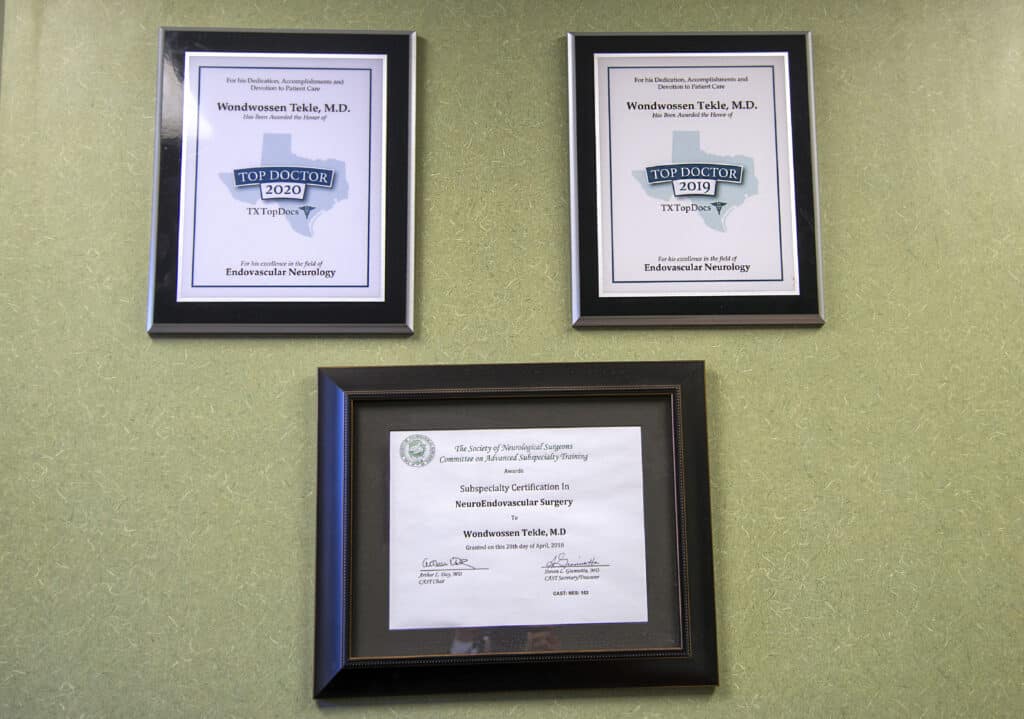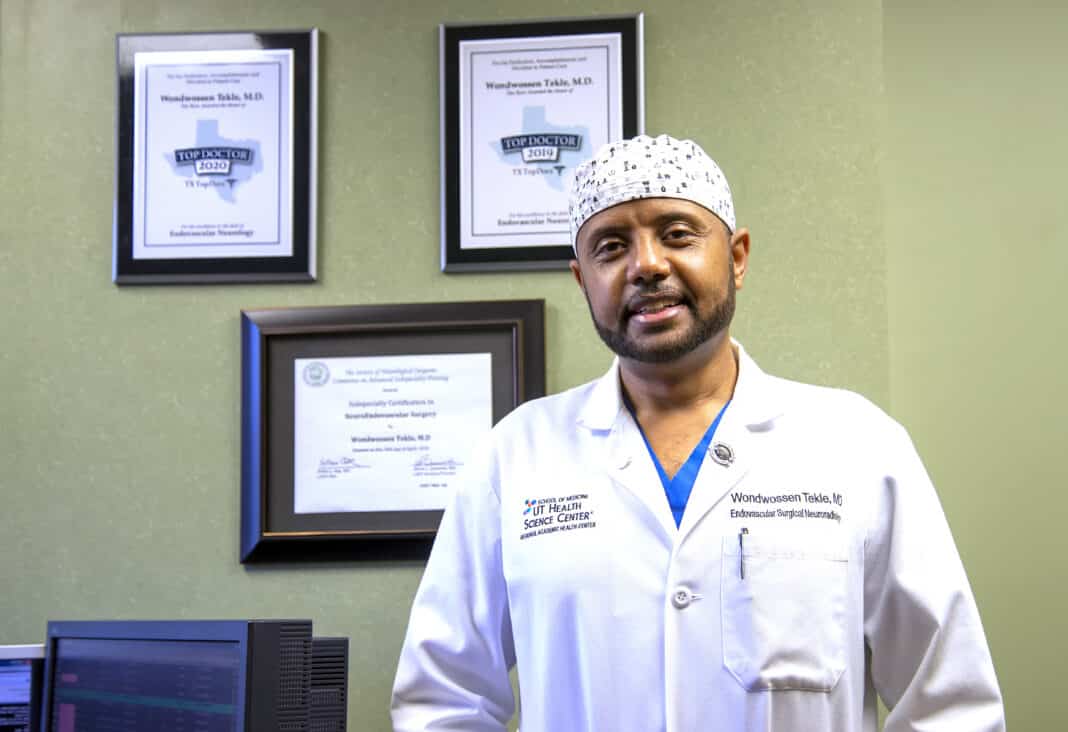HARLINGEN — It’s a long way from Ethiopia to the Valley, but he’s settled into it — with a passion that continues to drive his journey.
“We love it here,” said Dr. Wondwossen Tekle, director of stroke and neurocritical care at Valley Baptist Medical Center.
“For someone who is originally from Addis Ababa, in Ethiopia – it’s a very highly-populated area, then from there I lived in Washington D.C.,” said Tekle, 45. “And then in Minneapolis, it’s a big city also of five million, twin cities. The Valley is the first place I’ve been to any small town.”
Tekle came to Valley Baptist in 2013 to join his friend, fellow trainee and colleague Dr. Ameer Hassan, who’d arrived the year before to help create the hospital’s neuroscience department.
“We built this program together,” Tekle said. “Before Dr. Hassan came here, he came a year before me, there was no one here who does what we do. (We) trained in exactly the same way.”
Hassan and Tekle have made quite a team and they’ve been on a fascinating medical journey to arrive where they are today. Hassan, a New Jersey native, is the son of Egyptian parents. And Egypt is right next door to Ethiopia.

Tekle became fascinated by neuroscience while earning his medical degree from Addis Ababa University, the Ethiopian capital.
Upon completion of that degree in 2000, he spent about three years in the southern African country of Malawi working for the Peace Corps, UNICEF and Doctors Without Borders.
UNICEF stands for United Nations Children Fund.
It was about this time his fiancé Fasika Yohannes, moved to California to work as a nurse, so he moved to Washington D.C. in 2004.
He realized then he wanted to do clinical work again, which is what he’s doing now, so he took the United States Medical Licensing Examinations. He and Fasika married in Washington D.C. in 2005. The following year he began his residency in neurology at George Washington University. It was during this time he met Hassan, who was doing his residency in New Jersey.
“We met as residents,” he said. “So then we were talking and he said, ‘I’m going to Minnesota for my specialty’ and I said, ‘OK, I will apply there.’”
And so he did, and they ended up with the same specialty in neurology with two subspecialties, one of them being stroke and neurocritical care and the other endovascular surgical radiology.
“We cliqued back then, we have a very similar work ethic, we work hard, and other than that we trained in exactly the same specialty,” he said.
At the same time, Valley Baptist had been, and still is, actively recruiting physicians with strong incentives to relocate to the Valley. Hassan accepted a position here in 2012, and he invited Tekle to join him the following year. The result is a progressive, state-of-the-art neuroscience department which they run together.
“We divide the work exactly halfway,” he said. “One week he is on, one week he is off, and the other week I am on. We both do research, we both do clinical work.”
Tekle’s research focuses on stroke and cerebral vascular disease in general. More specifically, he studies how stroke affects human beings and the kinds of treatments that are available. He also studies brain aneurysms.
The Valley is a far cry from any other place he and his wife have lived.
“When we first moved here it was challenging,” he said. “There are only three or four Ethiopians here, so there is not much Ethiopian culture. Like in the D.C. area there are almost 100 Ethiopian restaurants and other cultural places.”
And they’re happy to raise their three sons here. They have a two-year-old, and the two older boys attended St. Alban’s Episcopal Day School. The oldest is now at Rising Scholars Academy.
“The kids love the school, they love the school system,” he said.
His wife Fasika slowly adjusted to the slower Valley pace, and they both now see that slower pace has some dividends.
“It’s more manageable here, you can get from place to place in time, not like in Washington D.C. where you get stuck in traffic anytime,” he said.
Tekle is currently assistant professor at the University of Texas-Rio Grande Valley. Just last month he was recommended for promotion to associate professor.
He’s created a non-profit organization called Ethiopia Stroke Initiative to help stroke patients in his home country.
He continues to train and gain additional knowledge in the medical field. In 2018 he earned a certification in clinical research from Harvard University.




